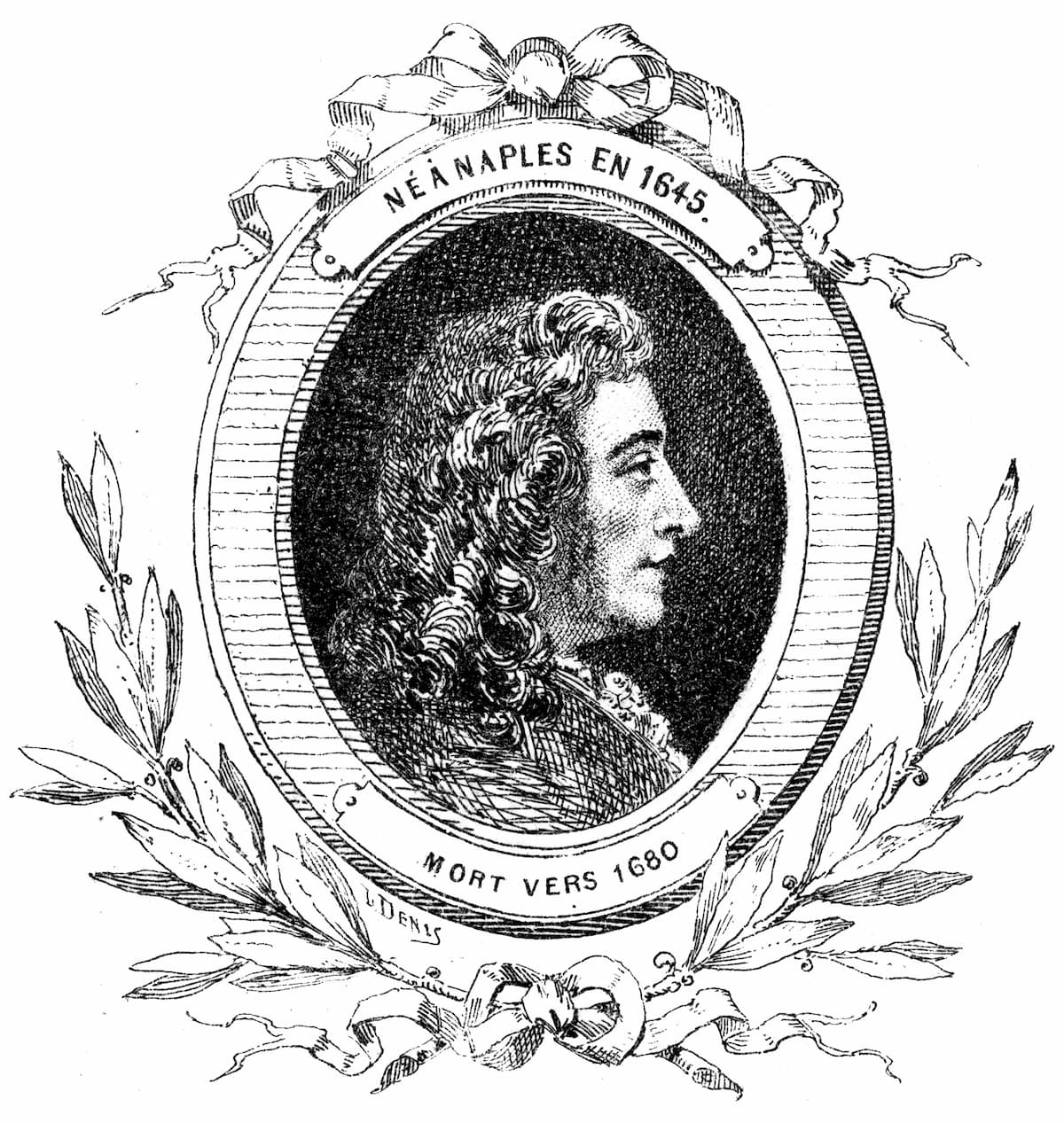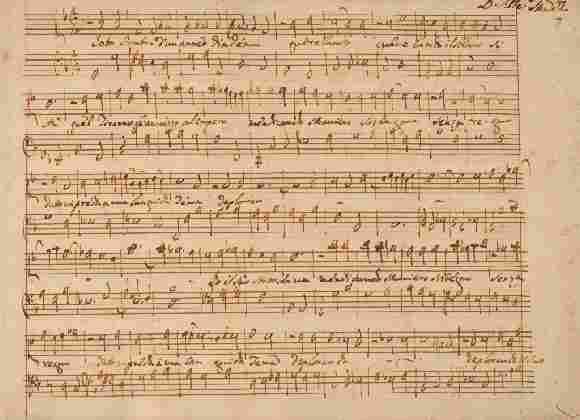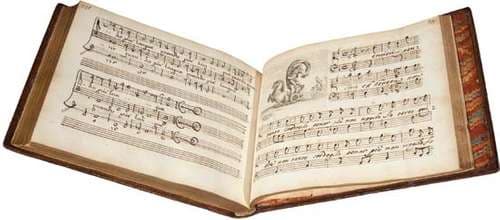Alessandro Stradella’s life ended tragically at the age of 42 when a shadowy assassin stabbed him to death for reasons unknown. Allegedly, a certain Giovanni Battista Lomellino organized the murder. Lomellino, it has been said, became jealous when he realized that an actress who had been made pregnant and abandoned by Abate Granvella, and whom he had aided, preferred Stradella to him. Be that as it may, Stradella certainly enjoyed a colorful and dazzling career as a freelance composer who managed to make countless enemies along the way. One thing for sure, Stradella was one of the most versatile and lively Italian composers in his day, and he certainly sent musical and social shockwaves throughout Italy and beyond. Little is known about his early life, but he made his appearance as a composer at the age of 20. Just a couple of years later we find him in Rome, composing mostly sacred music for Christina, Queen of Sweden.
Alessandro Stradella: Sinfonia No. 7 for 2 Violins and Continuo in G Major (Ensemble Arte Musica; Francesco Cera, cond.)

Alessandro Stradella
Stradella quickly gained notoriety, and not merely as a composer. For one, he attempted to embezzle money from the Roman Catholic Church. Together with the castrato Giovanni Battista Vulpio, he contrived to get 10,000 scudi from an “ugly and old” woman to arrange her marriage to a relative of Cardinal Cibo, the papal secretary of state. The ruse was quickly discovered, and the culprits were threatened with imprisonment. Stradella, who had previously been in hot waters for his numerous affairs with married women, was urged to depart for Venice as quickly as possible. Once arrived, Stradella was hired by the powerful nobleman Alvise Contarini to teach music to his mistress, Agnese Van Uffele. As it happens, Stradella and Uffele became lovers, and fearing the wrath of Contarini, they fled to Turin. However, less than a month later Contarini arrived in Turin to seek revenge. Agnese hid in the convent of S. Maria Maddalena, while Stradella sought refuge with the brothers at S. Domenico. After a month of trying to get his hands on the couple, Contarini left Turin frustrated. However, he instructed the archbishop that the girl must marry Stradella or take the veil.
Alessandro Stradella: “Adorata liberta, dal mio core non partir” (Susanne Rydén, soprano; Harmonices Mundi String Ensemble; Claudio Astronio, cond.)

Alessandro Stradella unreleased music score
Succumbing to pressure, Stradella agreed to marry Agnese, and on 10 October 1677 he signed the marriage contract. While walking away from the convent, however, he was attacked from behind. The two would-be hired assassins believed him dead and left him in the street. Thanks to pure luck or an iron constitution, Stradella survived and the two assassins took asylum with the French ambassador. As it was generally known that Contarini had hired the attackers, the unsuccessful assassination quickly led to an international incident and crisis. Maria Giovanna put Agnese’s father in prison, objecting to foreign powers entering her territory and wrote to Louis XIV about his ambassador’s behavior. As France and Savoy were already engaged in another political dispute, the matter quickly went to court. In the end, Stradella, now recovered, made peace with Contarini and arrived in Genoa. Nothing more was heard of Agnese Van Uffele.
Alessandro Stradella: “Care Jesu suavissime” (Gérard Lesne, counter-tenor; Sandrine Piau, soprano; Il Seminario Musicale)

Manuscript of Alessandro Stradella
Stradella’s musical reputation immediately got him a position with the orchestra at the Teatro del Falcone. A group of wealthy patrons agreed to provide him with a house, food, and a servant in addition to a generous yearly stipend. He was quickly commissioned to compose both sacred and secular music, but once again he had trouble staying away from married women. An official anonymous complaint against Stradella was logged with city officials, but to no avail. Stradella was an extremely influential composer, and none of his personal scandals ever affected the demand for his music. In fact, his colorful life became the subject of novels, songs, poems, plays and even opera librettos. It has been suggested that Stradella’s greatest contribution to the development of instrumental music “is his use of concerto grosso instrumentation, first employed as an accompaniment to vocal music and finally for independent instrumental compositions.” One thing is certain, Stradella shook the musical establishment to its core, and Corelli, Vivaldi and Handel took great delight in exploiting his music.
For more of the best in classical music, sign up for our E-Newsletter
Alessandro Stradella: Sonata di viole in D major, “Concerto-concerto grosso” (Giovanni Adamo, violin; William Bignami, violin; Giuliano Nalesso, violin; Federico Zampieri, violin)

